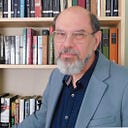I've never been sure what constitutes "literary," although I have a bit of a feel for it. Mostly, I suspect "literary" is whatever puffed-up academics want it to be. ;-) I'm only half-joking. In his Science Fiction Writer's Handbook, L. Sprague de Camp wrote of taking a writing course in college. At a certain point he asked the professor, "But what about plot, setting, and characterization?" The professor replied, "Oh, that's what we call 'good story.' We don't teach that here." (You can hear him sniffing in derision as he says it.)
Personally, I approach it this way: tell a good story first, and layer in theme and symbolism and evocative language as you go. I think that might get somewhere near "literary" if I do it well, without sacrificing popular appeal. My literary idol, Ray Bradbury, had a gift for that, and as far as I know, he's regarded as both popular and literary.
As for Tolkein, I'm surprised to hear he's a hard sell in the literary world. He's been the subject of many literary analyses, has he not? Of course, he might be sniffed at because he was strongly Catholic, and his works were influenced by his faith. Maybe some would prefer to ignore that angle. Also, some of the analyses by Catholic scholars may go a bit overboard. Yet you'd have to be blind to miss Gandalf's Christ-like resurrection, as one example. (By the by, I'm not Catholic myself. I'm a Baha'i. But my late wife was Catholic and the one who introduced me to Tolkein. We had more than one discussion along these lines.)
Anyway, thank you for the thoughtful article!
